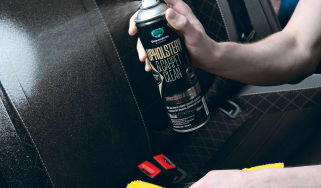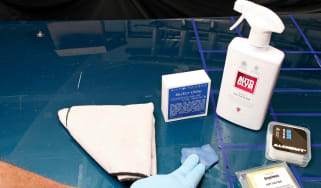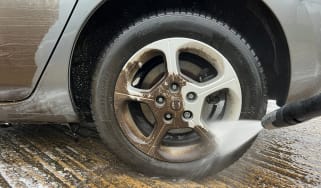Matte car paint: what is it and how do you look after it?
Everything you need to know about matte car paint, including what it is, whether you should get it and how you should look after it if you do…

There are many ways to make your car stand out, especially when it comes to aesthetics, but few options open to car buyers have as big an impact as the choice of paint. New car buyers have the opportunity to choose from a wide variety of colours for their vehicle, with pricey metallic or pearlescent paint finishes regularly offered by manufacturers.
Some brands have now extended their paint finish offering to include matte paint, and this unique option has also become popular on the aftermarket.
What is matte paint?
Whereas traditional paint finishes, such as metallic, are glossy and shiny, matte paint is the opposite. It’s muted and obstructs light reflections.
If viewed under a microscope the surface of a car body panel painted with a matte finish will appear rough and irregular compared to the smooth surface of gloss finish paint. Where the flat gloss finish reflects light in a regular way to produce a shiny appearance, the bumpy surface of matte paint absorbs the light.
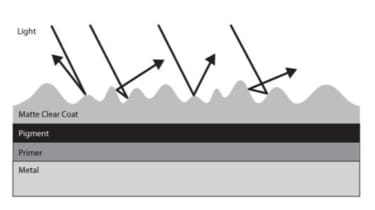
There are a range of matte finishes on the market, with drivers able to choose how little shine they want from their car. If you like the matte style and want it on your vehicle, there are a few things you should know before taking the plunge.
How to look after matte paint on a car
Before you decide to buy a car with a matte paint finish or respray your car with matte paint, you ought to familiarise yourself with the care process. Cupra, which offers matte paint on its new cars, has partnered with car care brand Autoglym to provide advice on how this works - and there are a few extra steps involved than there are with glossy paint.
The key to caring for a car with a matte paint finish is not to flatten that rough surface that absorbs the light. If you think of the surface of paint as a mountain range with peaks and valleys, it’s important to avoid using abrasive cleaning products that will flatten the peaks or hard paste waxes that will fill in the valleys. Doing so will produce more of a glossy finish on your matte painted car.
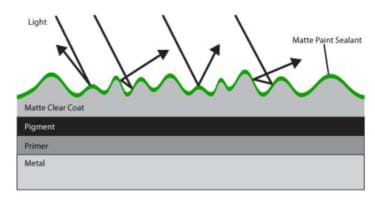
Owners of cars with matte paint are advised to start with a pre-wash using snow foam, followed by a rinse with a pressure washer to remove dirt and other abrasive particles, which could scratch the paintwork if left in place. This stage is particularly crucial for matte paint finishes because damage is harder to fix than on gloss paint.
For the contact part of the wash, a gloss enhancer-free shampoo can be applied with a wash mitt. It’s fine to use insect or tar remover on matte paint as well.
When it comes to paintwork protection, a liquid wax or ceramic spray is recommended because this will produce a thin coating over the contours of your matte paint surface rather than filling in those valleys in the paint. As we’ve said, it’s crucial to avoid using hard waxes, polishes or scratch removers on matte paint.
Matte wrapping your car instead of respraying
If you want a matte finish on your car, but don’t want to commit to a respray, a vinyl wrap may be a good option for you.
This is significantly cheaper than repainting your car and achieves similar results when done properly. A good vinyl wrap should last up to five years.
Should you opt for matte paint on your car?
The question of whether getting a car with matte paint is a good idea comes down to personal taste. If you like the matte paint look and feel that it suits your car, go for it but do so with your eyes open.
It’s a fact that matte paint is a little more prone to damage and that damage sustained is harder to fix than on gloss painted cars. You also need to be prepared to care for your matte paint finish in the correct way.
Now read our guide to vinyl car wrapping...

